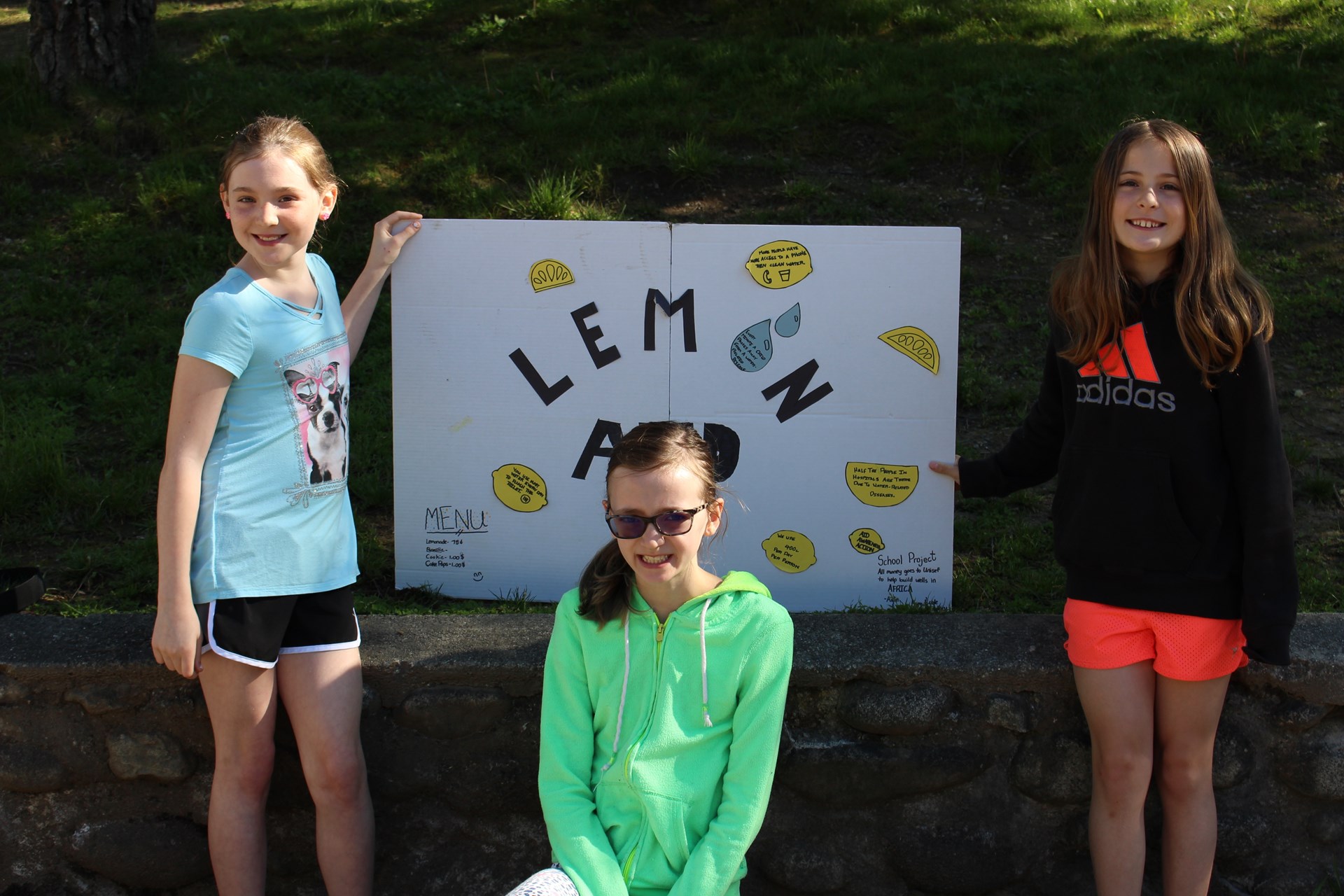The weather has warmed and on neighbourhood streets throughout North Vancouver local kids can often be seen manning pop-up lemonade stands where they are selling their homemade versions of the sour and sweet thirst quencher. For students in Johneen Harris' grade four/five class at Boundary Elementary School, however, their lemonade stand efforts took on additional meaning this year.
"We were thinking it might not make a difference because we wouldn't raise enough money, but when we joined together with the other groups in our class we actually could make a difference. We raised enough money to help build a well," said Ireland Carlson, grade 4 student, Boundary Elementary.

Ireland and her two classmates, Aislin Parusel and Isabel Creighton, were one of six groups who decided to sell lemonade for a class project focused on water. Harris first did lessons with her students about issues related to water, such as access to fresh drinking water, water conservation, and pollution. Students were then able to select any topic related to water they wanted and create an action project out of their topic – they needed to do something to take action, raise awareness, or provide aide to solve a problem they identified related to water.
"By taking an action-project approach, my class was able to combine various curricular areas such as science, social studies and English. Furthermore, students were able to use all the core competencies (social responsibility, communication and thinking skills) in a real-life situation. Core competencies are groups of intellectual, personal, and social and emotional proficiencies that all students need to cultivate in order to engage in lifelong learning and are an important part of the new BC curriculum," said Harris.
Students were able to embrace their creativity as they selected not only their topic, but also how to address the issues they identified and how to present their learning. For the six groups that undertook lemonade stands this was their method for raising money to support clean drinking water in developing nations, which was the problem they identified. Collectively, the groups raised $268.00; nearly enough money to build a well in Africa through Unicef.
Another group of students who chose clean drinking water as the focus of their project decided to place their attention on access to drinking water in Canada. They identified that many Aboriginal communities in our country do not have clean drinking water.
"Water is a human right. It's unacceptable that Canadians don't have clean water. It's just bad," said Asher Weinrauch, grade 4 student.

To tackle this issue, Weinrauch and his partner Caden Westie-Hammond researched how to create homemade water purification systems. They then built a water filter from rocks, sand, activated charcoal, cotton swabs and a coffee filter. Their completed product was quite effective. Based on their efforts, the students suggest that clean water can be provided in cost effective ways to all Canadians by implementing simple purification systems in Canadian communities that currently lack clean drinking water.
For Oliver Webber-Harding, Rhys Nester and Caden Allen, they took a community awareness approach to their project. They created a PowerPoint presentation about water conservation and pollution that they then presented to classes in their school.

"We wanted to introduce students to water pollution to spark some awareness and to get them thinking about how they can help," said Allen, grade 4 student.
Their presentation incented a lot of questions from other students, and students could even be heard at recess talking about the presentation. From their research, Webber-Harding, Nester and Allen also decided to embark on efforts to have the vending machine at the school removed. The vending machine generates lots of waste, so the students wrote a letter to the school principal and to teachers suggesting that the vending machine be removed. The students argued that removing the machine would be better for the environment, create healthier students and staff, and result in less work for the office. Staff voted unanimously to remove the machine from the school.
"I don't think elementary schools need vending machines – they need water," said Webber-Harding, grade 4 student.
The students also have future aspirations of trying to raise funds to have a water-bottle refilling station installed at the school.
"Overall, I think my students learned a lot from this project. We covered a vast amount of curricular content, while igniting a passion for helping make the world a better place and teaching basic life skills such as communication and collaboration. It's hands-on, real-life learning such as this that sticks with students and carries them forward. Who knows, maybe one day these kids will be involved in working with natural resources," said Harris.